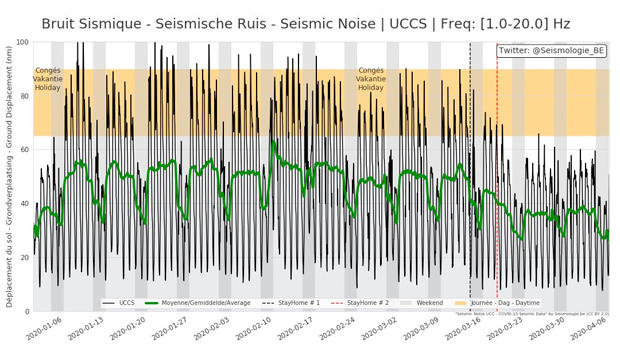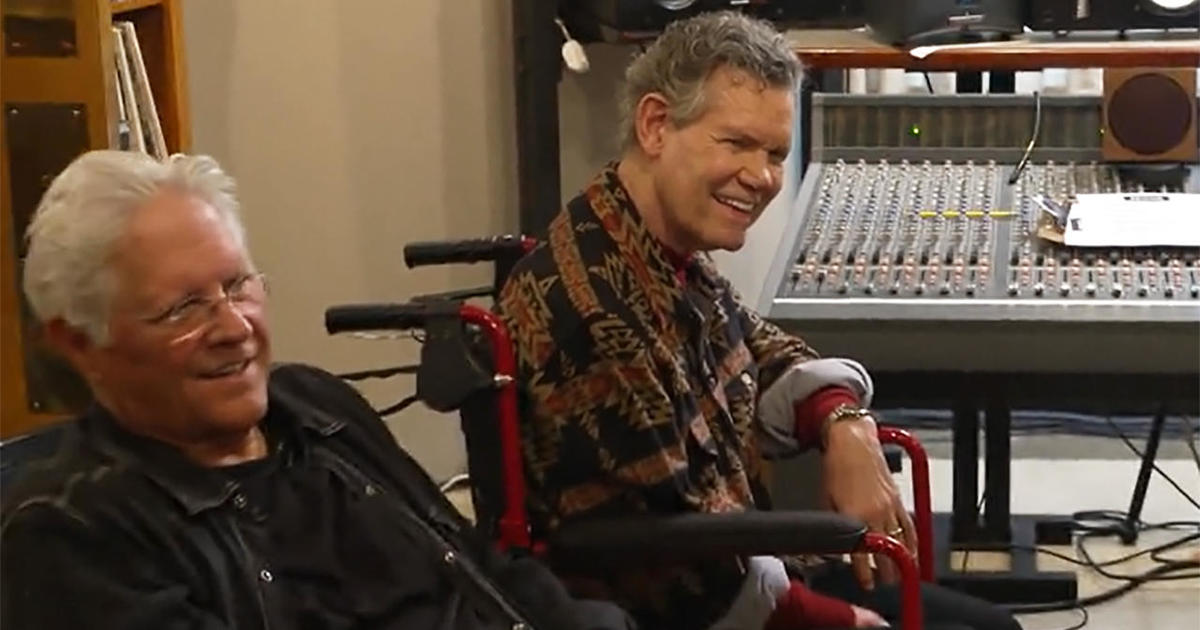Earth Day 2020: Measuring our seismic impact on the land
With roughly one-third of the world on lockdown, life is quieter these days, not just for people, but for the planet, too.
Worldwide, seismologists are reporting a noticeable reduction in seismic "noise" – small vibrations under the Earth's crust.
"The Earth's vibrations are affected by many things: the environment, storms at sea, waves breaking on the continental shelves, earthquakes, obviously," said Andy Frassetto, project associate with the Incorporated Research Institutions for Seismology in Washington, D.C. "But also human activity, which has been significantly reduced over the last few weeks with stay-at-home orders and just the reduction in people traveling. And that has resulted in less vibrations of the Earth in frequencies that humans often generate."
That seems to be the case in most urban centers, like the areas around Atlanta where, Frassetto said, seismic noise has decreased by nearly 40%.
"You could make the case that that's probably directly caused by lack of traffic," Frassetto said. "More people are staying home, less people are traveling to and from work during the day."
The hope among seismologists is that this drop in man-made noise could help them detect small earthquakes.
"Seismologists are always on the lookout for earthquakes, because they can provide a lot of information about what's going on under our feet – where the faults are, where we might need to be thinking about hazards," Celeste Labedz, who works with California Institute of Technology's Seismological Lab," told "Sunday Morning" producer Sara Kugel. "Those small earthquakes happen every day, but they can be hard to detect, because of this background noise.
"Just like it's easier to hear your phone ring in a library than in a rock concert, it's easier to detect small earthquakes when the seismic noise level is quieter than when it's louder. So, we're definitely detecting more earthquakes during these lockdowns then we would be at a more normal time."
But Labedz is quick to point out: no cause for alarm! "This change in background noise doesn't affect the probability of there being an earthquake anywhere," she said. "So, if you live in an area with earthquake hazards, you should be just as prepared as always.
"Earthquakes don't take a break because we're busy with other disasters!" Labedz added. "So, you don't need to be more, or less, worried."
Instead, Andy Frassetto said, this new information should create a new appreciation for the planet, especially on Earth Day.
"It's a reminder that we have a very, very interesting imprint on the world, that sometimes we don't fully appreciate that human activity can manifest on geophysical instruments and things that scientists look at very clearly," said Frassetto. "And now, this is a situation in which we're getting reminded about how much humans have to do with that."
For more info:
- Incorporated Research Institutions for Seismology (IRIS)
- Caltech's Seismological Laboratory
- Earth Day 2020
Story produced by Sara Kugel and Roman Feeser.




